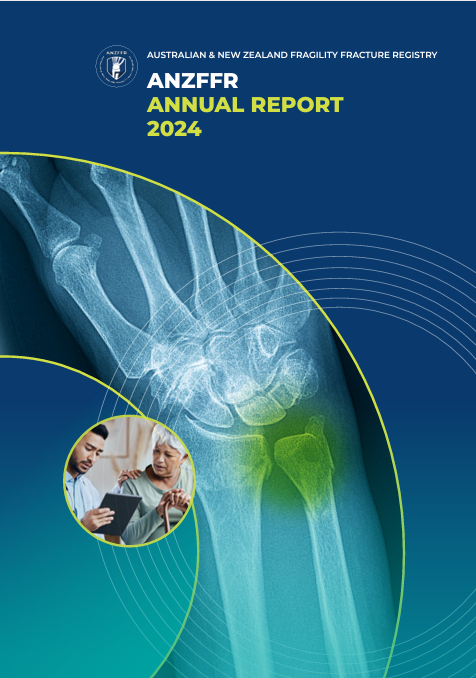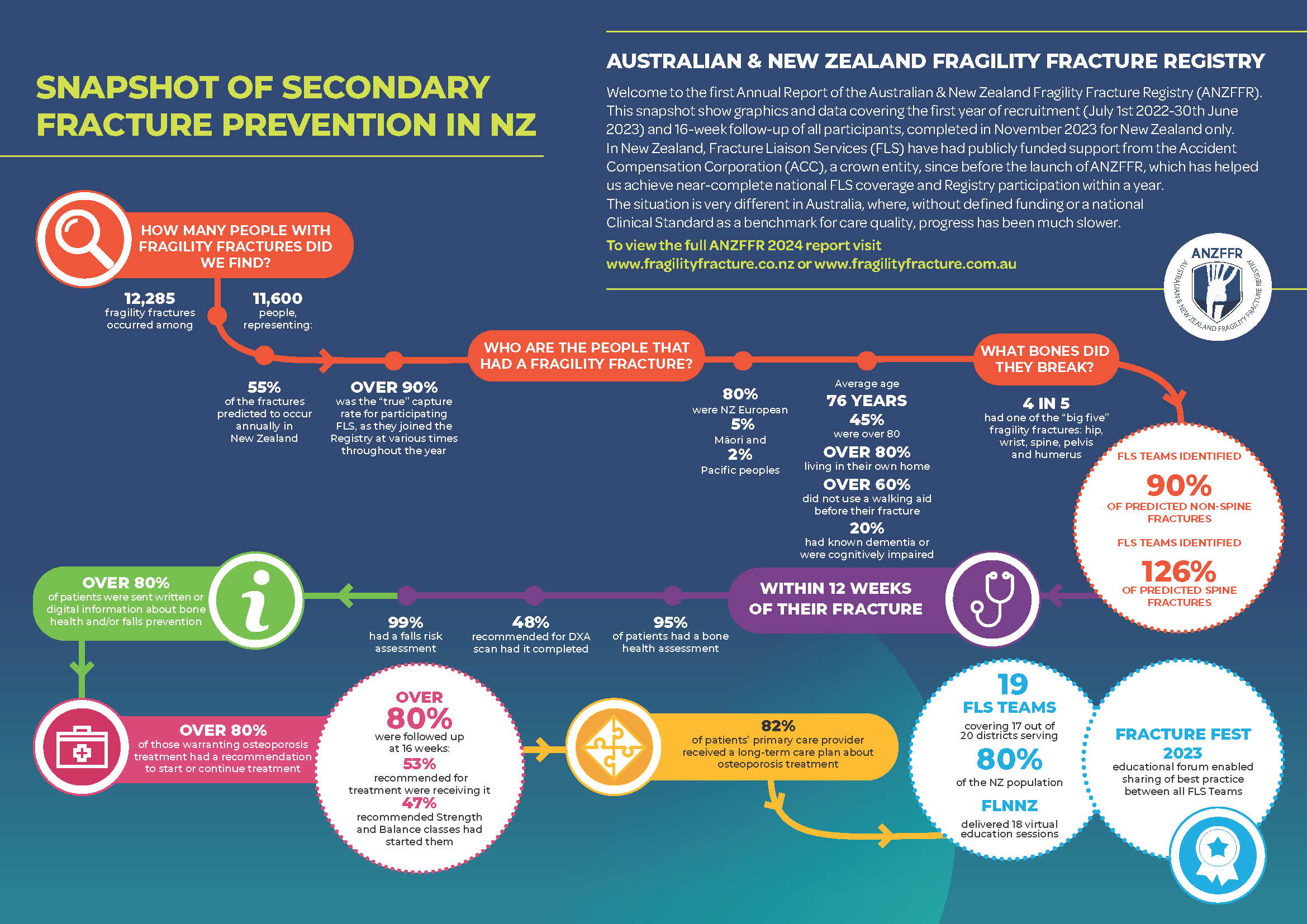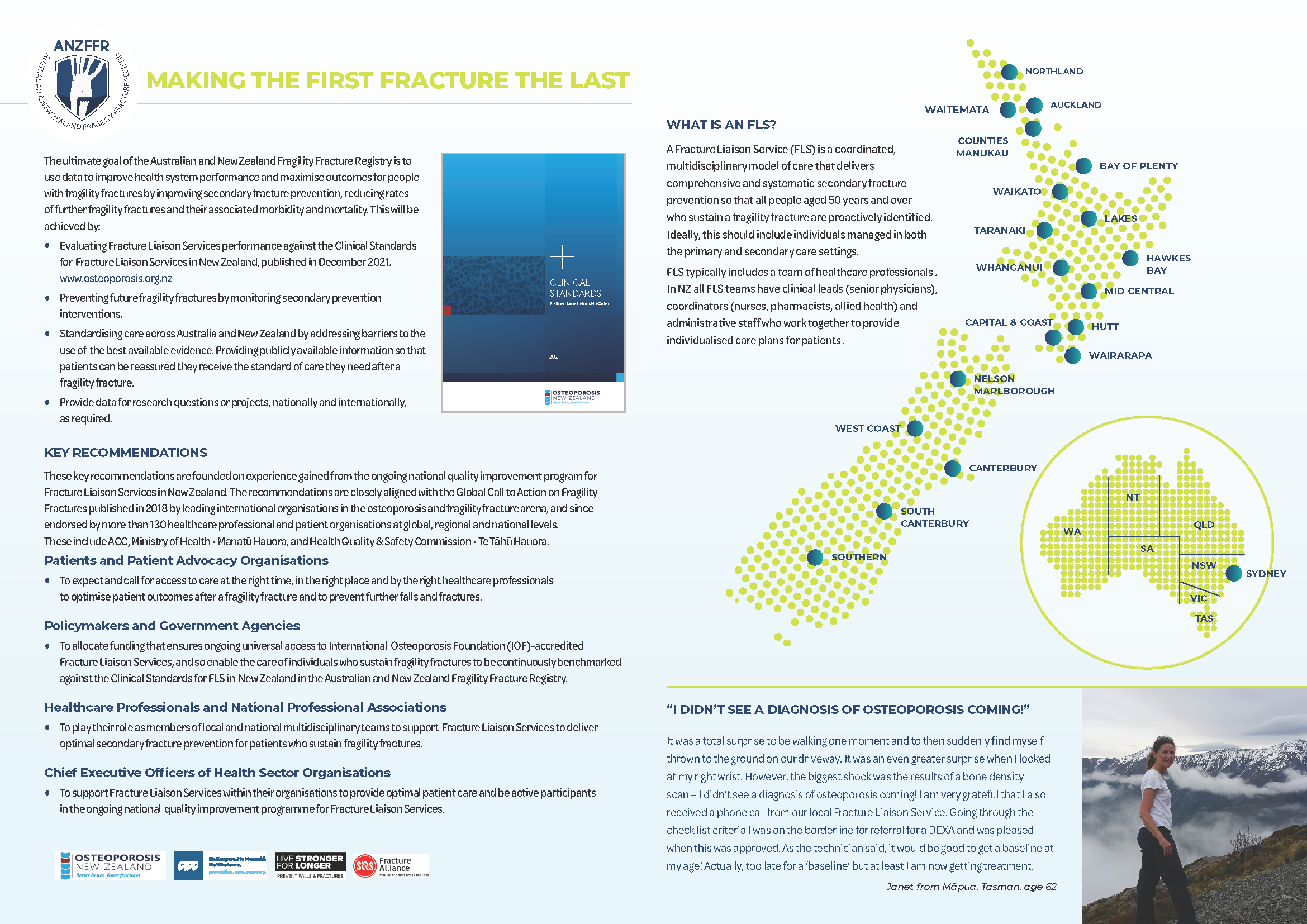2024 ANZFFR Annual Report
In a landmark stride towards improving patient outcomes, the inaugural Fragility Fracture Registry report has been unveiled, casting a pioneering light on the management and treatment of fragility fractures. This comprehensive report not only benchmarks current practices but also sets forth a roadmap for enhancing care standards globally.
Through meticulous data compilation and analysis, it offers a deep dive into treatment efficiencies, patient recovery trajectories, and preventive strategies, underscoring the critical need for a paradigm shift in both public awareness and healthcare policies. Its release marks a significant leap forward in our collective journey towards mitigating the impact of these often overlooked injuries, promising a future where fragility fractures are no longer a silent epidemic but a well-understood and effectively managed health challenge.
Reporting Period: July 2022 - June 2023
Significant Achievements:
- Registry Launch Success: Successful implementation across participating hospitals with robust stakeholder engagement
- Data Quality Excellence: Establishment of comprehensive data collection and validation processes ensuring high-quality, reliable information
- Baseline Metrics Foundation: Comprehensive baseline measurement of fragility fracture care across New Zealand's healthcare system
- Professional Engagement: Strong participation from healthcare professionals and institutions, demonstrating commitment to quality improvement
- Clinical Standards Alignment: Initial assessment of care delivery against established Clinical Standards for FLS
- International Recognition: Acknowledgment as a pioneering initiative in fragility fracture care monitoring
Transformative Findings:
- Patient Recruitment Success: Patient recruitment exceeded initial targets with over 8,000 participants, demonstrating strong community engagement
- Care Pathway Analysis: Identification of key areas for improvement in patient care pathways, from initial fracture to long-term management
- Performance Benchmarking: Establishment of benchmark performance indicators that serve as foundation for ongoing quality improvement
- Geographic Insights: Recognition of geographic variations in service delivery, informing targeted improvement strategies
- FLS Effectiveness Evidence: Initial evidence of Fracture Liaison Service effectiveness in participating sites, validating the care model
- Quality Improvement Opportunities: Clear identification of opportunities for systematic care enhancement


